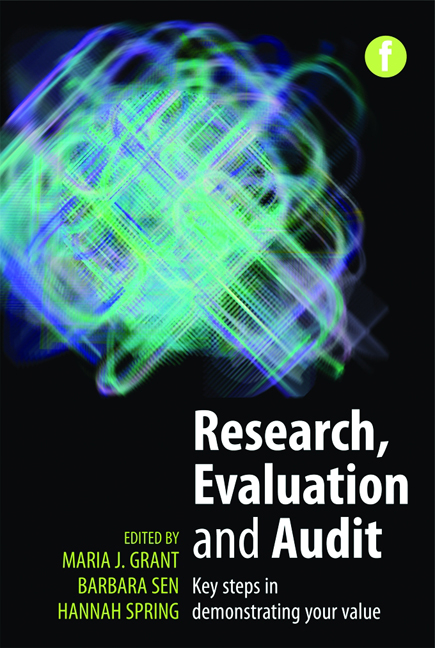Book contents
- Frontmatter
- Contents
- About the Editors
- Contributor
- Foreword
- Preface
- PART 1 GETTING STARTED
- 1 What are research, evaluation and audit?
- 2 Building confidence
- 3 Asking the right question
- 4 Writing your project plan
- 5 Ethics and best practice
- PART 2 DOING RESEARCH, EVALUATION AND AUDIT
- PART 3 IMPACT OF RESEARCH, EVALUATION AND AUDIT
- Closing remarks
- Index
5 - Ethics and best practice
from PART 1 - GETTING STARTED
Published online by Cambridge University Press: 08 June 2018
- Frontmatter
- Contents
- About the Editors
- Contributor
- Foreword
- Preface
- PART 1 GETTING STARTED
- 1 What are research, evaluation and audit?
- 2 Building confidence
- 3 Asking the right question
- 4 Writing your project plan
- 5 Ethics and best practice
- PART 2 DOING RESEARCH, EVALUATION AND AUDIT
- PART 3 IMPACT OF RESEARCH, EVALUATION AND AUDIT
- Closing remarks
- Index
Summary
‘I'm only doing a local project.’
‘What kinds of ethics are there?’
‘Ethics only apply to health projects, right?’
Ethical practice in research is about doing what is possible, while protecting the stakeholders involved in the process (see Chapter 13). Accepted practice prevents researchers from engaging in data collection before receiving ethical approval but the process by which this approval is obtained will vary, depending on your local circumstances. Your own organization may invest responsibility for ethics review in a specific individual, such as a senior or research and development manager, while universities and research centres have formal ethics panels. Some organizations may operate a system of ‘gatekeepers’, with formal ethics boards only handling ‘highrisk’ applications and referrals from ‘lower’ gatekeepers such as departmental ethics committees or individual delegates, e.g. research students’ supervisors.
Even if your proposal doesn't need to go through a local ethical approval process, it is important that it reaches a comparable standard. There must be a clear idea of research purpose (see Chapters 3 and 4), a body of relevant research to draw from (what we know already – see Chapter 6), specified research methods to be used (see Chapters 7 and 8), appropriate research processes and techniques, and a sound prediction of the foreseeable risks and benefits.
Throughout this chapter, we will call attention to the many and various ethical challenges that may face you as a researcher.
Why are ethics important?
Actual physical and psychological harms to research participants have been well documented over the years, and are of course to be avoided, but less horrific instances of unethical research are often overlooked. Ethical misconduct can take many forms, ranging from plagiarism, fabrication or falsification of data, misrepresentation of findings, to collaborator disputes and errors of judgment.
Ethics are about what is ‘right’ or ‘wrong’ in a given condition, and they are about behaviours and conduct. Robust ethical research practices make for sound, valid and reliable research. Your disciplinary or professional peers must trust your research and, as a researcher, you are responsible for the ethics of your actions and decisions.
- Type
- Chapter
- Information
- Research, Evaluation and AuditKey steps in demonstrating your value, pp. 65 - 76Publisher: FacetPrint publication year: 2013

